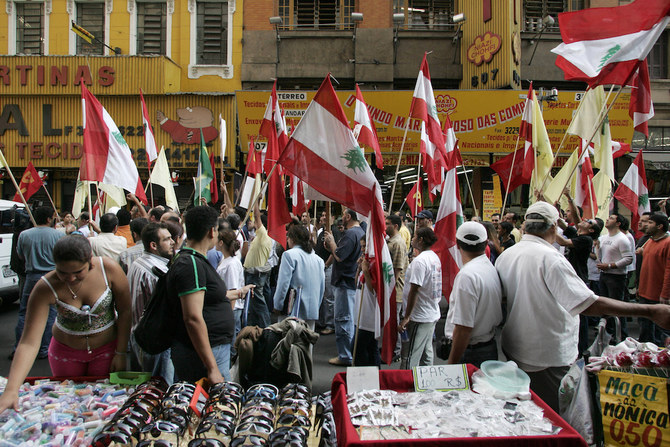SAO PAULO, Brazil: Although an estimated 18 million Latin Americans can trace their ancestry to the Arab region, little effort has been made to chronicle and conserve the writings, photographs and news clippings that document the history of their migration and settlement — until now.
Most of the Arabs who moved to Latin America did so in the final decades of the 19th century and the first half of the 20th, with the majority of them traveling from Syria and Lebanon in search of fortune and a fresh start far from the Ottoman Empire.
To collect and highlight the individual journeys of these Arab pioneers and their contribution to the New World, an archive dedicated to telling their stories has been created by the Holy Spirit University of Kaslik, also known as USEK, a private, not-for-profit Catholic university in Jounieh, Lebanon.
Inaugurated at the end of March this year, the collection currently includes about 200,000 pages from Arab newspapers and magazines, stacks of photographs, and other illuminating documents that help shed light on the diaspora’s presence in Latin America.
Brazilian-born Roberto Khatlab, director of USEK’s Latin American Studies and Cultures Center, or CECAL for short, conceived the project after spending several years working in the cultural department of the Brazilian embassy in Beirut and conducting independent research on Lebanese migration to Brazil.
“Over the years, I gathered lots of documents concerning that history,” he told Arab News.
During a trip to Latin America a few years ago, Khatlab realized a wealth of important historical material was at risk of being lost unless it could be properly collected and collated.
“Over time, such documents end up in the hands of grandchildren or great-grandchildren who do not speak Arabic and do not know what to do with them,” he said.
As a result, many people end up throwing away family collections or donating them to local libraries, which are not always equipped or qualified to adequately catalog them.
In addition, newspapers produced by early Arab immigrants were often printed on cheap, poor-quality paper that does not always stand the test of time, and so surviving copies can be extremely fragile.
“I have received 100-year-old newspapers which literally disintegrated as we tried to take them out of the envelope,” said Khatlab.
Syrian-Lebanese immigrants created the first Arabic-language Latin American newspaper, called Al-Fayha, in 1893 in the Brazilian city of Campinas.
In the local Portuguese language, its name was Mundo Largo, which translates as Wide World. As the author of several books about Brazil’s historical relationships with Lebanon and the wider Arab world, Khatlab recognizes the value of such historical documents for academic study and posterity.
“Under the Ottoman Empire, many intellectuals were not able to publish their ideas in the Arab world at the end of the 19th century,” said Khatlab. “In the nascent Arab press in countries like Brazil and Argentina, they found the space they needed.
“Many times, the articles published in the Arab press in Latin America by such thinkers were sent back to the Arab world and disseminated there in intellectual and political circles.”
Most of the early Arabic newspapers in Latin America were produced by Syrian or Lebanese migrants but there were also a number of Egyptian publications. Over the years, the Arab community launched newspapers that reflected a variety of viewpoints based around political ideologies, religious creeds, social clubs and the arts.
“Many poets and writers published works in the Latin American Arab press,” said Khatlab. “Some of them were renowned in the Arab world, while others disappeared. But their production and the ideas conveyed in their texts have great importance to Arabs, even now.”
The archive has attracted the support of institutions across Latin America that have connections to the Arab community and they have provided small teams who are helping to collect and digitize materials, using equipment donated by USEK.

